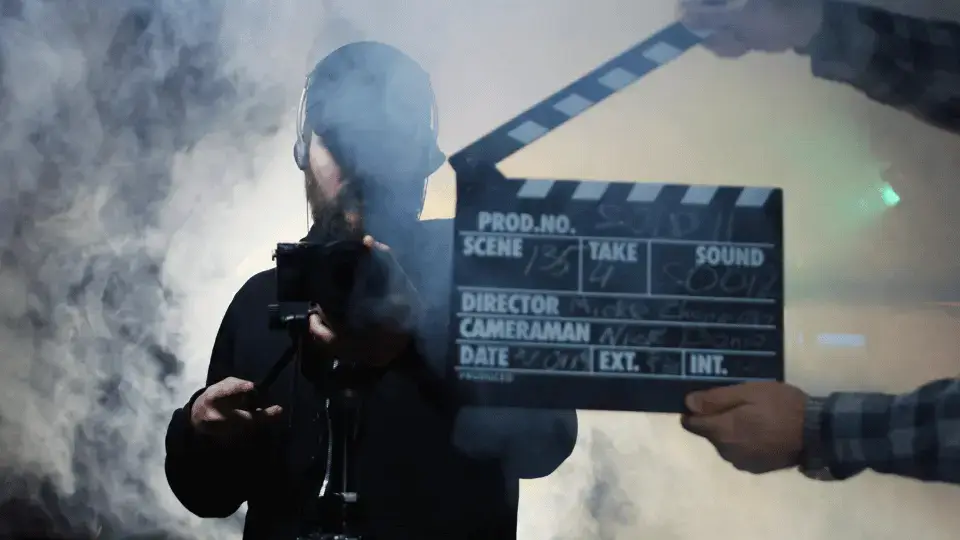The Complete Film Curriculum: Your Path to a Successful Career
If you’re considering a career in the film industry, you’re probably wondering how to get started. One of the most important steps you can take is to find a comprehensive film curriculum that will give you the skills and knowledge you need to succeed.
In this article, we’ll explore what a film curriculum is, what topics it should cover, and how you can find the right program for you. We’ll also share some tips for making the most of your film education and building a successful career in the industry.
What is a Film Curriculum?
A film curriculum is a structured program of study that covers the various aspects of filmmaking, from writing and directing to editing and post-production. It may be offered as part of a degree program, such as a Bachelor of Fine Arts in Film, or as a standalone certificate program.
A good film curriculum should provide a well-rounded education that covers both the creative and technical aspects of filmmaking. It should also give students hands-on experience with the tools and equipment used in the industry, as well as opportunities to work on real-world projects.
What Topics Should a Film Curriculum Cover?
A comprehensive film curriculum should cover a wide range of topics related to filmmaking. Here are some of the key areas that a good program should address:
- Screenwriting: A good film starts with a good script. A film curriculum should teach students the fundamentals of screenwriting, including story structure, character development, and dialogue.
- Directing: The director is responsible for bringing the script to life on screen. A film curriculum should teach students the art of visual storytelling, including camera angles, shot composition, and blocking.
- Cinematography: The cinematographer is responsible for capturing the visuals of the film. A film curriculum should teach students the technical aspects of cinematography, including lighting, lenses, and camera settings.
- Editing: The editor is responsible for assembling the footage into a coherent story. A film curriculum should teach students the basics of editing, including pacing, continuity, and sound design.
- Post-Production: Post-production includes all of the work that happens after filming is complete, including color correction, visual effects, and sound mixing. A film curriculum should give students hands-on experience with these tools and techniques.
- Producing: The producer is responsible for overseeing the entire filmmaking process, from development to distribution. A film curriculum should teach students the business side of the industry, including budgeting, financing, and marketing.
How to Find the Right Film Curriculum for You
Now that you know what topics a good film curriculum should cover, how do you find the right program for you? Here are some tips to help you get started:
- Research Programs: Start by researching film programs in your area or online. Look for programs that have a good reputation and offer the topics you’re interested in studying.
- Read Reviews: Look for reviews of the programs you’re considering. Talk to current or former students to get their perspective on the quality of the program and the teaching staff.
- Check Accreditation: Make sure the program you’re considering is accredited by a recognized organization. This will ensure that the program meets certain standards of quality and that your degree or certificate will be recognized by employers.
- Consider Cost: Film programs can be expensive, so it’s important to consider the cost when choosing a program. Look for programs that offer scholarships or financial aid to help offset the cost.
- Look for Hands-On Experience: A good film curriculum should give students hands-on experience with the tools and techniques used in the industry. Look for programs that offer opportunities to work on real-world projects or internships.
Making the Most of Your Film Education
Once you’ve chosen a film curriculum, it’s important to make the most of your education. Here are some tips to help you succeed in your program and build a successful career in the industry:
- Be Open to Feedback: Filmmaking is a collaborative process, and you’ll need to be open to feedback from your peers and instructors. Use their feedback to improve your skills and learn from their experiences.
- Build Your Network: The film industry is all about who you know. Use your time in school to build relationships with your classmates, instructors, and industry professionals.
- Take Advantage of Resources: Your film program may offer resources such as equipment rentals, editing suites, or sound studios. Take advantage of these resources to build your skills and create high-quality projects.
- Be Professional: The film industry is a professional environment, and you’ll need to behave accordingly. Be punctual, respectful, and communicate clearly with your peers and instructors.
- Stay Up-to-Date: The film industry is constantly evolving, so it’s important to stay up-to-date with the latest trends and technologies. Attend industry events, read industry publications, and take courses to continue learning and growing.
Key Takeaways
A comprehensive film curriculum is essential for anyone pursuing a career in the film industry. Look for a program that covers a wide range of topics, offers hands-on experience, and is accredited by a recognized organization. Once you’ve chosen a program, make the most of your education by being open to feedback, building your network, and taking advantage of resources. And consider taking the NYU Film and TV Industry Essentials online course and certificate program to further your education and career in the industry.








